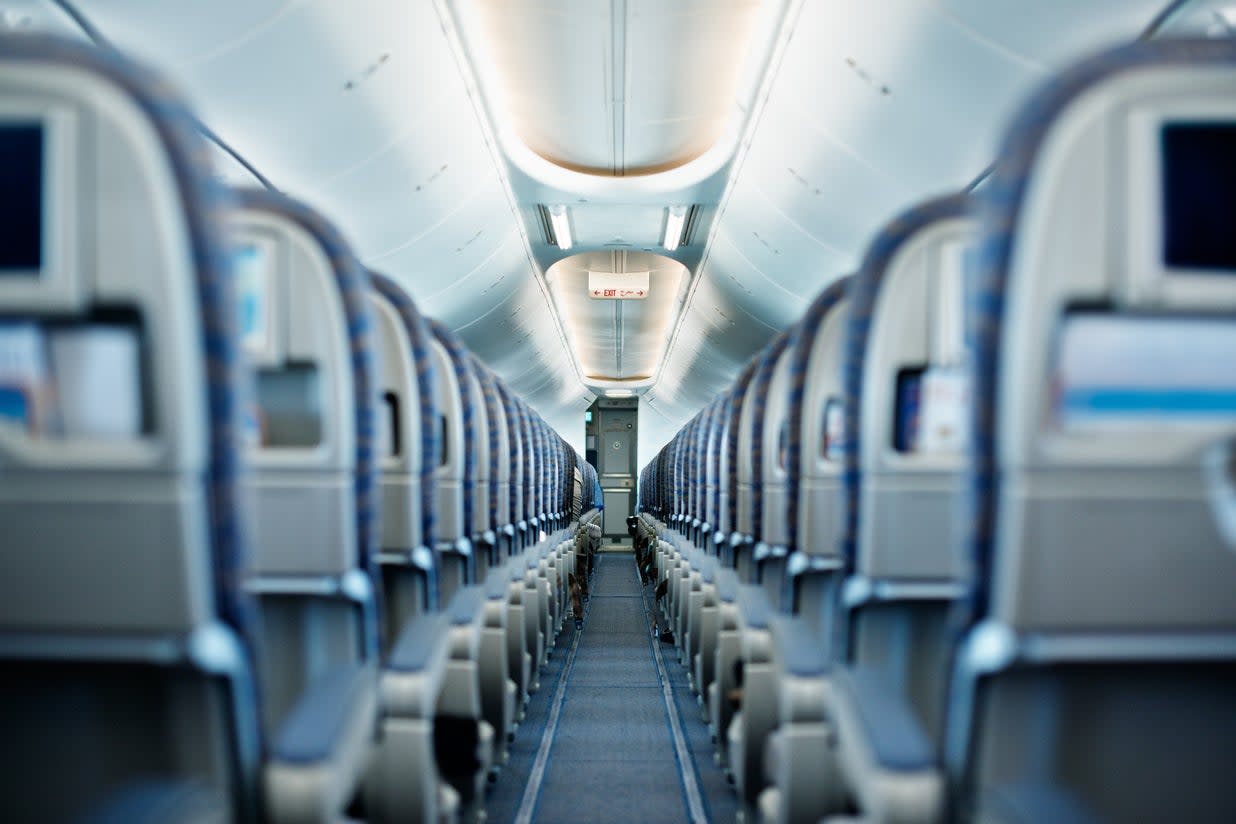Coronavirus: Airline passengers trying to switch seats will be told to stay put

As the coronavirus pandemic transforms passenger aviation, the cheap-seats shuffle is no more.
Traditionally, some economy-class passengers on flights that are not full will move from their assigned seats before or shortly after take-off.
But anyone hoping to take advantage of extra space is likely to be scolded by cabin crew and told to go back to their assigned place.
Passengers remaining in their allocated seats is one of the measures the International Air Transport Association (Iata) says will be necessary when aviation restarts at scale.
Iata’s member airlines are desperate to attract new business. The association calculates that the airline industry’s global debt could rise to $550bn (£450bn) by the end of the year.
The restart will depend upon passenger confidence. Airlines and airports are deploying measures from airport temperature checks to mandatory face coverings on board in a bid to reduce risk and reassure travellers.
But since some passengers may, knowingly or not, take flights while infectious, Iata is also recommending a track-and-trace system whereby nearby travellers can be reached after the journey and told to self-isolate.
Nick Careen, Iata’s senior vice president for airport, passenger, cargo and security, said: “Once you are in your seat, you can’t change any more.”
By ensuring the airline’s seating records tally with passenger behaviour, contact tracing will be much more effective.
Prior to the coronavirus pandemic some airlines sought to dampen self-service seat selection on board, in order not to disrupt complex “weight and balance” calculations. But many were lax, so long as passengers did not attempt to “self-upgrade”.
Alexandre de Juniac, Iata’s director general and CEO, said the aviation industry plans “a science-based biosecurity regime that will keep our passengers and crew safe while enabling efficient operations”.
He said: “The restart will go much more smoothly if governments cooperate.
“We must avoid the mess that followed 9/11 when governments acted unilaterally. This created confusion for airlines and travellers alike. And it took many years to clean up.
“We have a small window to avoid these mistakes with Covid-19 by agreeing global standards for a restart. In doing so, we must build in measures for continuous review so that we can streamline the system as science and technology evolve.”
Read more
Ryanair announces €1bn profit but forecasts deep losses
Coronavirus: Ryanair boss says travellers will flout 14-day quarantine
BA boss rebukes government for ‘setting back recovery’
British Airways boss scathing about quarantine move
British Airways says no ‘meaningful’ return to service before July


